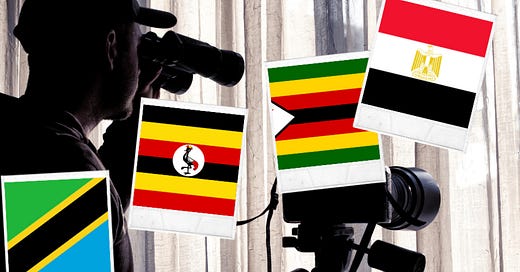Securocracies and Opposition Infiltration in Africa: Analysis of Intelligence Agency Strategies in Tanzania, Uganda, Zimbabwe and Egypt
In many African nations, the interplay between security establishments and political systems has created an environment where intelligence agencies play a pivotal role in maintaining the political status quo. Often operating within what scholars and analysts describe as "securocracies"—states where security agencies wield disproportionate influence over governance—these institutions prioritize regime survival above all else. A critical tool in their arsenal is the infiltration of opposition parties. By embedding agents and employing various tactics, these agencies neutralize political dissent, often undermining democratic processes. This article examines how intelligence agencies in securocracies infiltrate opposition parties in Africa, the methods they employ, the implications for political pluralism, and the broader socio-political consequences.
Understanding Securocracy and Its Drivers
Definition and Characteristics
A securocracy is a governance model where security forces—military, police, and intelligence agencies—dominate civilian institutions and policymaking. In these states, the boundary between national security and regime security becomes blurred. Leaders in securocracies view opposition movements not as legitimate political entities but as existential threats. Consequently, intelligence agencies are empowered to disrupt any activities perceived as challenging the regime.
Drivers in the African Context
The prevalence of securocracy in Africa can be attributed to several factors:
Colonial Legacy: Many African states inherited coercive state apparatuses from colonial powers designed to suppress dissent rather than promote inclusivity.
Weak Democratic Institutions: Fragile political systems often lack mechanisms to mediate conflict, making coercion an attractive tool for regimes.
Resource Competition: Control over state resources fuels zero-sum politics, incentivizing the suppression of opposition movements.
Authoritarian Tendencies: Leaders often consolidate power by relying on intelligence agencies to monitor and disrupt political adversaries.
Infiltration Strategies Used by Intelligence Agencies
The infiltration of opposition parties by intelligence agencies involves multifaceted strategies aimed at undermining their cohesion, discrediting their leadership, and eroding public trust.





